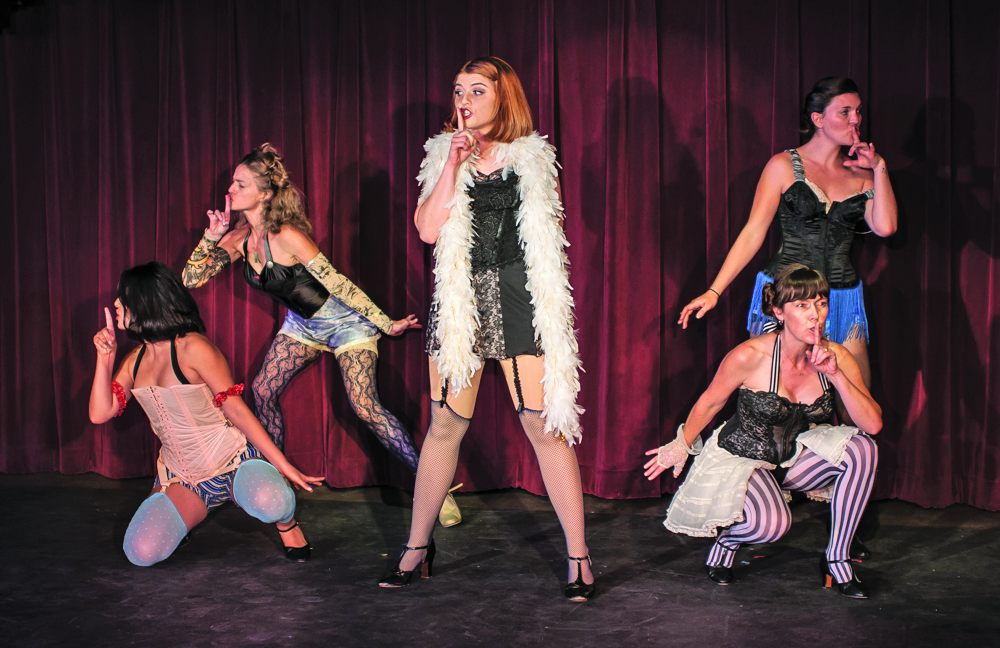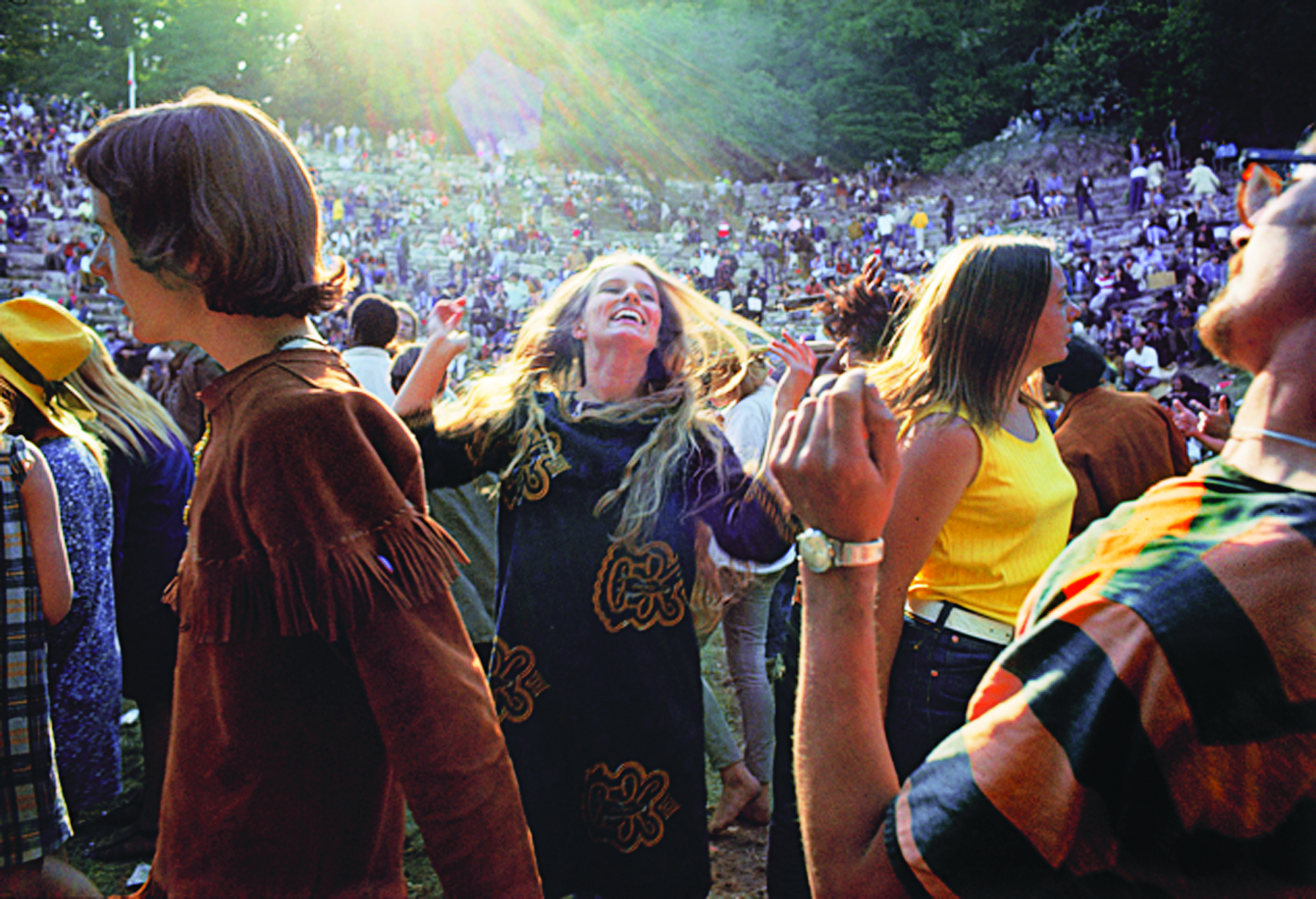The house lights dim. A three-piece band seated stage left begins the first chords of the score and when the lights come up, four provocatively clad chorus girls are dancing seductively in front of a drawn red curtain. Suddenly, a heavily rouged and powdered face emerges where the two halves of the curtain meet, and seconds later, like a satyr, the evening’s emcee prances toward the footlights to deliver his greeting—“Willkommen, bienvenue, welcome … ”
Those are the opening moments of Ross Valley Players’ (RVP) current production of Cabaret, an American musical based on sources that included English writer Christopher Isherwood’s semi-autobiographical fiction, John Van Druten’s play I Am a Camera and Bob Fosse’s 1972 film that featured a score by John Kander and lyrics by Fred Ebb. No matter how many times you’ve seen the show, the sharply nasal voice and oleaginous smile that Joel Grey so memorably introduced on Broadway and in the film will likely suggest the coiled menace of a serpent as he invites us to join him for the festivities in Berlin’s notorious Kit Kat Klub, circa 1931. We—his audience—know we’re not in Germany on the brink of the Nazi putsch. In this case, we’re safely inside RVP’s familiar old Barn Theatre. Later, we’ll have a drink with friends or head back to our comfortable suburban homes for sleep that (for most) will be undisturbed by fears of what tomorrow may bring. Nevertheless, some may feel a chill. I did.
The timing couldn’t be better—or worse, depending on how you view it. “Better” because Cabaret reminds us that complacency when threats are building is not a good strategy. “Worse” because it may be too late.
Politics aside, the show is a promising start to the company’s 88th season of producing plays, many of which, like this one, are above the usual quality found in community theaters. Because of their astronomically high royalties, need for live musicians and assorted other items, musicals are costly to produce. In a program note, RVP Board President Vic Revenko breaks down Cabaret’s budget. The total is $36,400. That’s a huge sum for a little company which depends on financial support from its box office and small individual donors. The key is that so many talented artists are willing to work for little or no remuneration.
Director James Dunn managed to secure the services of a phenomenal emcee in the person of Erik Batz, who captures every nuance of that complex role. The Kit Kat Girls (Cindy Head, Mia Camera, Alexa Sakellariou and Jannely Calmell) execute Sandra Tanner’s sexually themed choreography with vigor and precision. Maxine Sattizahn (Fraulein Schneider) and Ian Swift (Herr Schultz) are totally believable as elderly would-be lovers whose burgeoning relationship is destroyed by the latter’s Jewishness and the former’s fear of Nazi reprisals against her modest boarding-house business if she accepts his proposal of marriage. Skylar Collins is convincing as the superficially friendly Ernst, whose business is to smuggle cash to Hitler’s growing movement. Sumi Narendran (Fraulein Kost), Ralph Kalbus (Max) and Jannely Calmell (Lulu) make up the remainder of this talented ensemble.
Well, almost. I haven’t mentioned Cabaret’s two other leads, Isaak Heath (Clifford Bradshaw) and Emily Radosevich (Sally Bowles). Their on-again, off-again romance, his sexual indecision, her unwillingness to exchange the thrill of Berlin’s high life as the Kit Kat Klub’s featured performer for the security of a tranquil existence in the U.S.—for me, all of this poses a problem. I can overlook the robust athleticism of the Kit Kat Girls, but with its multiple iterations over the years, Isherwood’s story has become so Americanized that it’s hard to accept two very homegrown actors playing opposite a sophisticated European interpretation of the emcee by Batz. Multiculturalism has its plusses and minuses, on and off the stage.
Be that as it may, the shiver that went through the audience when most of the cast ended the first act singing the Nazi anthem, “Tomorrow Belongs To Me,” was palpable. Maybe the message was getting through after all.
NOW PLAYING: Cabaret runs through Oct. 22 at the Barn Theatre, Marin Art & Garden Center, Ross; 415/456-9555; rossvalleyplayers.com.









